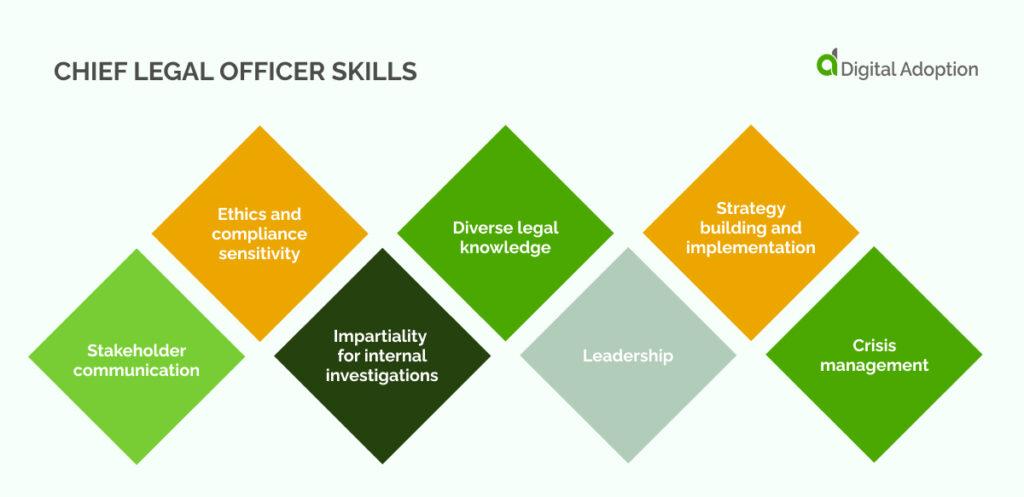Chief Learning Officer (CLO): Key roles,Responsibilities,and Career Path Explored
Introduction: Navigating the Chief Learning Officer Career in EdTech
As educational institutions increasingly prioritize digital transformation and personalized learning,the role of the Chief Learning Officer (CLO) in schools,colleges,and universities is rapidly evolving. Designed for forward-thinking job seekers interested in making an impact within education technology, the CLO position blends leadership, innovation, and instructional design to shape the future of learning. In this extensive guide, we’ll explore the roles, responsibilities, required skills, and career trajectory of the Chief Learning Officer, along with practical tips to advance your edtech career in academia.
What is a Chief Learning officer (CLO)?
A Chief Learning Officer is a senior executive responsible for defining, leading, and executing an association’s learning and development strategy. While CLO roles originated in the corporate sector, they have become increasingly vital in educational settings, where a blend of academic vision and technological acumen is required to propel learning innovation. At universities, colleges, and schools, the CLO oversees all aspects of educational technology, faculty development, digital learning, and pedagogical advancement.
Key Roles and Responsibilities of a CLO in Educational Institutions
The position of Chief Learning Officer in schools, colleges, and universities encompasses a wide range of critical functions. Here are the primary responsibilities CLOs typically hold in the academic edtech landscape:
- Educational Technology Leadership: Spearheading the adoption and integration of emerging technologies into curricula and classroom practice.
- Learning Strategy Development: Creating long-term visions for digital learning, instructional innovation, and curriculum enhancement.
- Faculty & Staff Development: Designing and implementing professional development programs for educators to build technology and pedagogical competencies.
- Student Success Initiatives: Ensuring student learning outcomes improve through data-driven analysis and adaptive learning interventions.
- Change Management: Leading institutional change, managing digital transformation projects, and fostering a culture of innovation.
- Collaboration & Interaction: Coordinating between academic leadership, IT, teachers, and external edtech partners.
- Compliance & Quality Assurance: Overseeing accreditation, regulatory compliance, and maintaining high standards of e-learning quality.
- Budget & Resource allocation: Managing budgets for learning technology initiatives and ensuring efficient resource deployment.
Essential skills and qualifications for Chief Learning Officers
To excel as a CLO in a university, college, or school, candidates must possess a unique combination of educational, technological, and managerial expertise.Here are the most sought-after skills and qualifications:
- Advanced Degree: Master’s or Doctorate in Education, educational Technology, Instructional Design, or a related field.
- EdTech Proficiency: Deep knowledge of learning management systems (LMS),assessment tools,analytics platforms,and digital content.
- Leadership Experience: Previous management experience in academic administration or corporate learning settings.
- Strategic Vision: Ability to develop and articulate actionable learning strategies aligned with institutional goals.
- Project Management: Expertise in leading cross-functional projects and teams, preferably in fast-paced environments.
- Analytical Thinking: Strong skills in interpreting learning data to guide decision-making and continuous improvement.
- Excellent Communication: Ability to engage and inspire faculty, staff, and students, with a talent for stakeholder management.
The career Path to Becoming a Chief Learning Officer
The journey to the Chief Learning Officer role in educational technology is typically built on a foundation of progressive experience and upskilling. Here’s a step-by-step roadmap for aspiring CLOs:
-
Start with Teaching or Educational Technology Roles
Begin your career as a teacher, instructional designer, or educational technology specialist to understand both pedagogy and learning tools.
-
Advance to management Positions
Move into roles such as curriculum coordinator, e-learning manager, or director of digital learning to gain leadership experience.
-
Earn Advanced Degrees and Certifications
Pursue graduate studies in educational leadership,technology integration,or instructional design,and seek professional certifications like CETL (certified Education Technology Leader).
-
Lead Large-Scale EdTech Initiatives
Take on projects involving institution-wide technology rollouts, faculty training programs, or learning analytics implementation.
-
Transition to Senior Leadership
Apply for positions such as Chief Learning Officer, Director of Digital Learning, or Vice President of Academic Innovation.
Benefits of the Chief Learning Officer Role in EdTech
Occupying a CLO position at a university, college, or school offers numerous rewards, both professionally and personally. Here are some key benefits:
- Pioneering Learning Innovation: Shape how modern education evolves,making a lasting impact on teaching and learning.
- Leadership Influence: Directly influence institutional strategy and contribute to executive decision-making.
- Continuous Professional Growth: Stay at the forefront of emerging trends in educational technology and pedagogy.
- High Earning Potential: CLOs are among the most well-compensated administrators in the education sector.
- Personal Fulfillment: Help educators and students achieve their best by cultivating transformative learning experiences.
Practical Tips for aspiring Chief learning Officers
Preparing for a Chief Learning Officer job in education technology requires a thoughtful approach. Here are actionable tips to help you stand out to hiring committees and accelerate your career growth:
- Build a diverse Portfolio: Showcase projects where you’ve successfully integrated technology,facilitated professional development,or improved learning outcomes.
- Develop Your Network: Attend edtech conferences, join professional associations, and connect with current CLOs to learn industry best practices.
- Stay Informed on Trends: Regularly read industry publications and research on topics like adaptive learning, AI in education, and data analytics.
- Sharpen Leadership Skills: Take courses in change management, communication, and team leadership to prepare for executive responsibilities.
- demonstrate strategic Thinking: Identify gaps in your current institution’s digital learning approach and propose innovative, data-driven solutions.
Conclusion: Is Chief Learning Officer the Right EdTech Career for You?
The Chief Learning Officer role in education technology is a uniquely influential position that sits at the intersection of leadership,innovation,and academic excellence. For job seekers passionate about transforming education at universities, colleges, or schools, this career offers the chance to drive impactful change, lead talented teams, and stay at the cutting edge of digital learning. By understanding the key roles,responsibilities,and career path of a CLO—and committing to continuous professional development—you can become a dynamic force in shaping the future of education technology.

